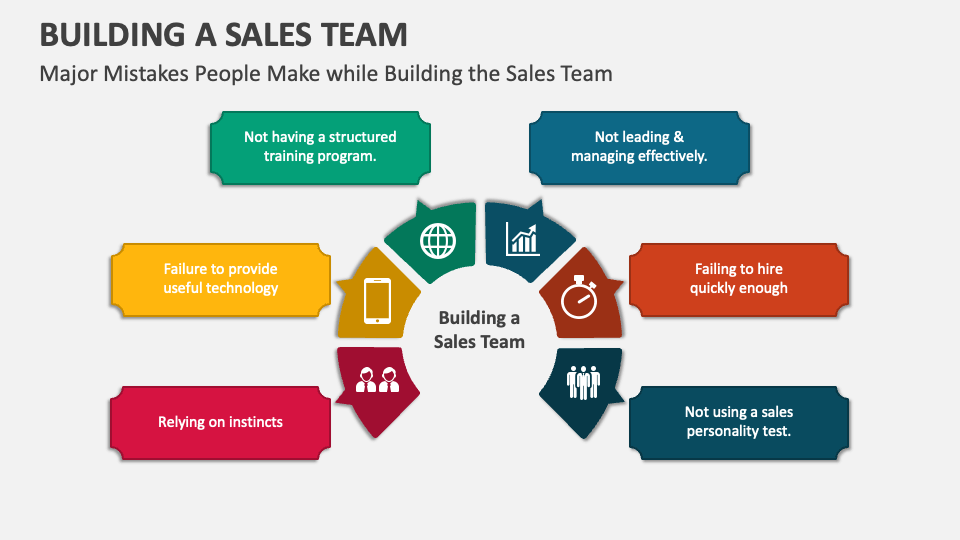How To Build A Successful Sales Team

In today's competitive business landscape, a high-performing sales team is often the engine that drives revenue and fuels growth. But building such a team is far from a simple task. It requires a strategic approach, careful planning, and a commitment to fostering a positive and productive work environment.
This article explores the key elements involved in building a successful sales team, drawing on insights from industry experts and best practices.
Identifying & Recruiting Top Talent
The foundation of any successful sales team lies in the quality of its members. Effective recruitment strategies are essential for attracting and securing top talent.
This begins with defining clear job descriptions that outline the specific skills, experience, and personality traits required for success in the role.
According to a report by HubSpot, companies that prioritize cultural fit during the hiring process experience significantly lower turnover rates.
Beyond Resumes: Assessing Potential
While resumes provide a snapshot of a candidate's qualifications, a comprehensive assessment process should go beyond simply reviewing past experience.
Consider incorporating behavioral interviews, skills assessments, and even simulations to gauge a candidate's problem-solving abilities, communication skills, and sales aptitude.
Salesforce research indicates that companies using data-driven hiring practices see a 25% improvement in new hire performance.
Training and Onboarding: Setting the Stage for Success
Once you've assembled a talented team, it's crucial to invest in comprehensive training and onboarding programs. This ensures that new hires are equipped with the knowledge, skills, and resources they need to hit the ground running.
Effective training should cover product knowledge, sales techniques, CRM (Customer Relationship Management) systems, and company policies.
Mentorship programs, where experienced salespeople guide and support new team members, can also be invaluable for accelerating the learning process.
Motivation and Incentives: Driving Performance
Motivating salespeople to achieve their goals requires a combination of intrinsic and extrinsic factors. While financial incentives are undoubtedly important, they are not the only driver of performance.
Recognition programs, opportunities for professional development, and a supportive work environment can all contribute to increased motivation and engagement.
According to a study by Gallup, employees who feel recognized and appreciated are more likely to be productive, loyal, and satisfied in their jobs.
The Power of a Positive Work Environment
Creating a positive and collaborative work environment is essential for fostering a successful sales team.
This includes promoting open communication, encouraging teamwork, and providing opportunities for social interaction. Regular team-building activities can help to strengthen relationships and build camaraderie.
"A healthy team culture fosters trust, respect, and a shared sense of purpose," says Dr. Amy Edmondson, a professor at Harvard Business School specializing in leadership and teamwork.
Measuring and Monitoring Performance
To ensure that your sales team is on track to achieve its goals, it's crucial to establish clear metrics and regularly monitor performance.
Key performance indicators (KPIs) such as lead generation, conversion rates, and sales revenue should be tracked and analyzed to identify areas for improvement.
Regular performance reviews and feedback sessions provide opportunities to recognize achievements, address challenges, and provide coaching and support.
Continuous Improvement: Adapting to Change
The business landscape is constantly evolving, so it's important to foster a culture of continuous improvement within your sales team.
This includes staying up-to-date on the latest sales techniques, technologies, and industry trends.
Encourage salespeople to experiment with new approaches, learn from their mistakes, and share their knowledge with the team.
By embracing a growth mindset and continuously seeking ways to improve, your sales team can stay ahead of the curve and consistently deliver exceptional results.
Building a successful sales team is an ongoing process that requires dedication, investment, and a commitment to creating a positive and supportive work environment. By focusing on recruiting top talent, providing comprehensive training, motivating performance, and fostering continuous improvement, you can create a team that consistently delivers exceptional results and drives sustainable growth for your organization.


















